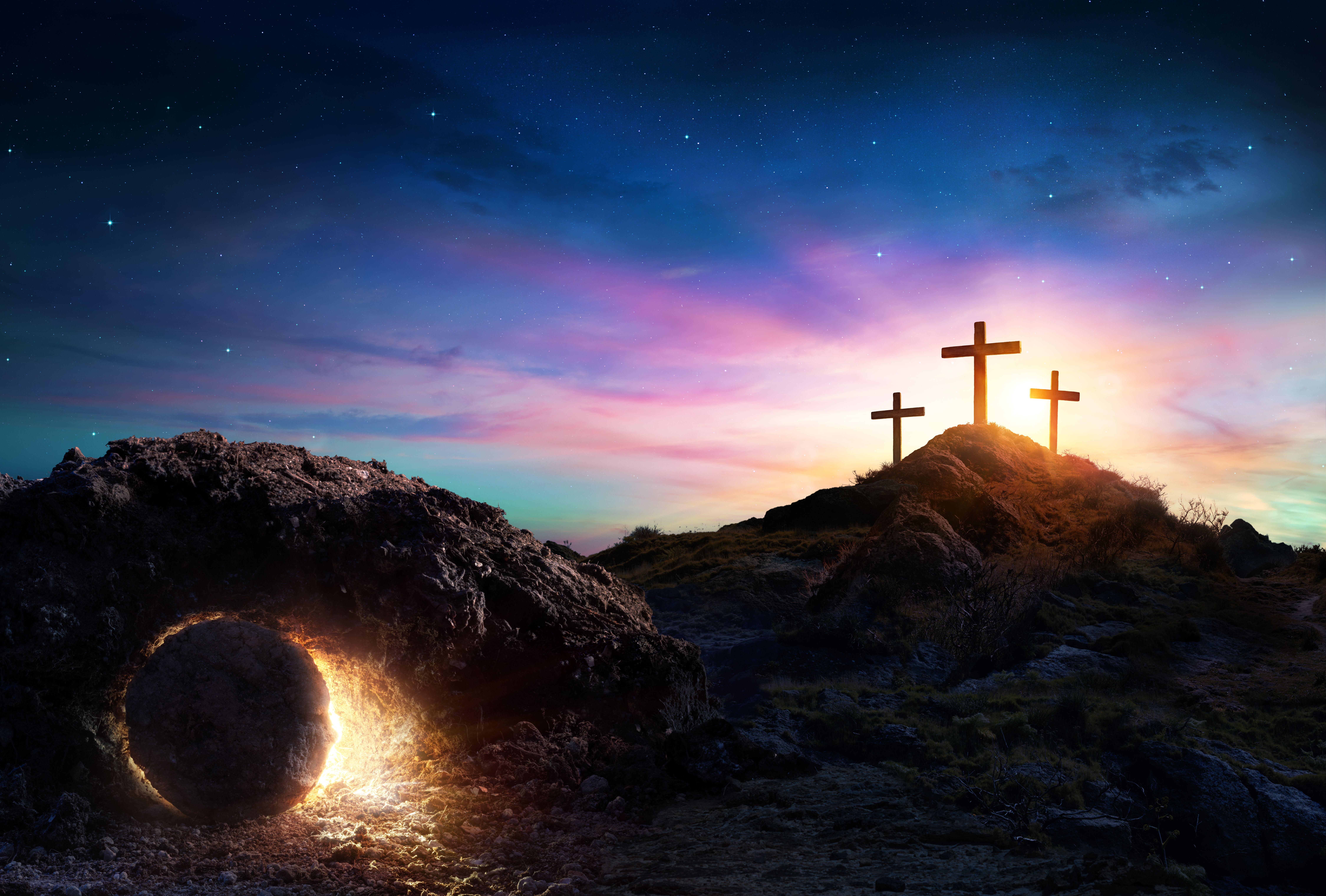Christians of all denominations are celebrating Holy Week, the high point of the year in the church’s liturgical calendar.
Holy Week begins with a commemoration on Palm Sunday, hailing Christ’s triumphal entry into Jerusalem. It ends on Easter Sunday, celebrating our Lord’s resurrection from the tomb.
But in between these high points stands the cross. In between these moments of rejoicing lies the crucifixion.
Our lives sometimes play out in a similar way.
We all experience moments of happiness and joy. Some we experience regularly, like enjoying a good meal or having a good laugh with friends. Others we experience more sporadically but to a greater degree. Graduations. Weddings. The birth of a child.
And yet, in between these events are severe moments of sorrow. Perhaps it’s relational suffering due to the loss of a friendship. Maybe it’s physical suffering because of a cancer diagnosis. Perhaps it’s emotional distress from a suicide or the death of a loved one.
Make no bones about it. Joy and suffering are a part of the current human condition. Though, it’s important to remember that the latter is result of humanity’s sin and rebellion against God.
Suffering wasn’t created by God – it’s a disorder in the universe; something that’s not supposed to be.
God did not create evil and suffering. But He does choose to allow it. And we can’t always know why God allows instances of evil to occur.
And yet, there is hope.
We have a God who doesn’t watch our suffering from afar. He is not aloof. Cold. Distant.
Rather, God entered into our human condition through the incarnation of Jesus Christ. Jesus came to suffer with us. He came to suffer for us.
That’s what Holy Week is all about.
In his book Walking with God Through Pain and Suffering, Pastor Tim Keller examines the Christian perspective on the problem of evil and suffering. He shares that the Christian worldview best answers life’s most difficult questions: “Why is there evil?” “Why is there pain?” “Why is there so much suffering in our world?”
Pastor Keller writes:
In Jesus Christ we see that God actually experiences the pain of the fire as we do. He truly is God with us, in love and understanding, in our anguish.
He plunged himself into our furnace so that, when we find ourselves in the fire, we can turn to him and know we will not be consumed.
He adds:
Secularism, as Richard Dawkins says, sees ultimate reality as cold and indifferent and extinction as inevitable. The other cultures also have seen day-to-day life as being filled with pleasure, but behind it all is darkness or illusion.
Christianity sees things differently. While other worldviews lead us to sit in the midst of life’s joys, foreseeing the coming sorrows, Christianity empowers its people to sit in the midst of this world’s sorrows, tasting the coming joy.
Christians love celebrating Easter, and we even like remembering our Lord’s Passion on Good Friday.
But when it comes to our own “Easters” and “Good Fridays,” we like the former, but we do everything we can to avoid the latter. We want to rejoice in the resurrection but avoid the cross.
There’s nothing inherently wrong with this. But some suffering is unavoidable. And when that’s the case, it’s time to turn to Christ’s example.
“My Father, if it be possible, let this cup pass from me; nevertheless, not as I will, but as you will” (Matthew 26:39).
In John 16:33, Jesus comforted his disciples, and He still comforts us today. He says:
I have said these things to you, that in me you may have peace. In the world you will have tribulation. But take heart; I have overcome the world.
May you have a blessed Holy Week.
Focus on the Family’s Counseling Department offers help from licensed or pastoral counselors. To request a conversation with Focus on the Family’s Counseling Department, call 1-855-771-HELP (4357) weekdays from 6:00 a.m. to 8:00 p.m. (Mountain Time), or complete our Counseling Consultation Request Form. Please be prepared to leave your contact information for a counselor to return a call to you as soon as possible. The consultation is available at no cost to you due to generous donor support and will be with one of our licensed or pastoral counseling specialists.
Related articles and resources:
Counseling Consultation & Referrals






